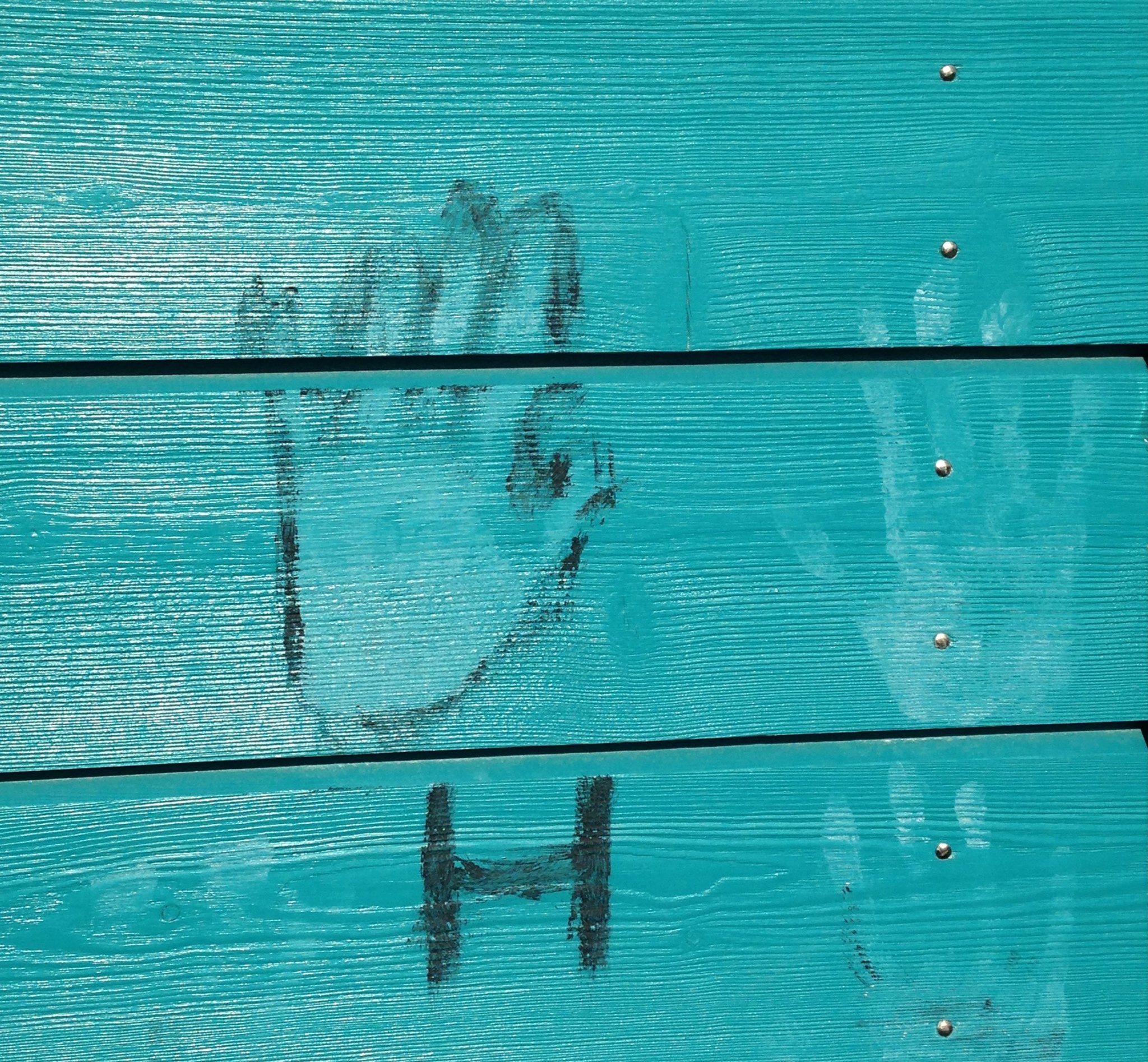'Politics of refuge' is a research seminar that will take place during the cultural event A Taste of the Other (from 24-26th May) organised by Le Channel Scène Nationale de Calais on the initiative of the researchers from University of Lille (academic partner) in collaboration with the ANR program Liminal /Inalco and « Non Lieux de l’Exil » (NLE).
 Here's a short explanation of the key theme of discussion that will accompany the participants during the whole seminar.
Here's a short explanation of the key theme of discussion that will accompany the participants during the whole seminar.
In April 2017, le Channel invited the artist Momette to work on a large collection of handprints as part of the artistic project Mano à Mano. Momette met with the inhabitants of Calais, some of whom were exiled persons either in transit or in the process of seeking asylum. While following her fieldwork, we realised that her practice consists of opening a space-time “bracket” of refuge through art. Futhermore, since the demolition of the slum of la Lande and the closure of the Jules Ferry centre along with the container camp, all the shelters, precarious camps that exiled persons try to install or occupy are systematically demolished following local policies that do not allow them to “fix a location.” Refuge is a heterogenous concept. In English, many words can be used to describe a refuge: a haven, a shelter, a sanctuary. Each of these words points towards a facet of the “refuge”, which is in itself a generic term. It essentially signifies a space-time bracket in which one can temporarily escape surveillance and control in the public sphere. From this point of view, the current French policy of providing shelter appears to be ambivalent as it ultimately enables them to justify the demolition of “precarious” camps. This idea of sheltering submits exiled persons to control and as a result, the shelter is no longer a place of refuge. For American anthropologist Anna Tsing, as quoted by Donna Haraway, a refuge is a place of regeneration for members of the human species that are endangered by reductive, rationalist and exploitative global policies. Thus perceived, a refuge can no longer be conceived uniquely from the point of view of hospitality, as a place that “we” would have to create in “our homes” for the “others” whose vulnerability drives them to seek “refuge”, at the cost of being cast aside or being assigned a space to occupy.
Rather than exploring the different ways of “offering” a refuge, as one “offers” hospitality, the seminar will instead try to explore the way in which shelters are actually experienced as a refuge for exiled persons. In order to be experienced as such, a shelter needs to not only provide the necessary conditions for regeneration but also create an environment in which exiled persons can experience a shelter as a refuge. A policy of refuge must, therefore, sustain the possibilities of regeneration: possibilities of speaking, creating, resting, befriending, recreation, and uniting against hostility. How does the cultural and artistic world figure into such a policy?
No prior booking is required. Check the full programme here.



